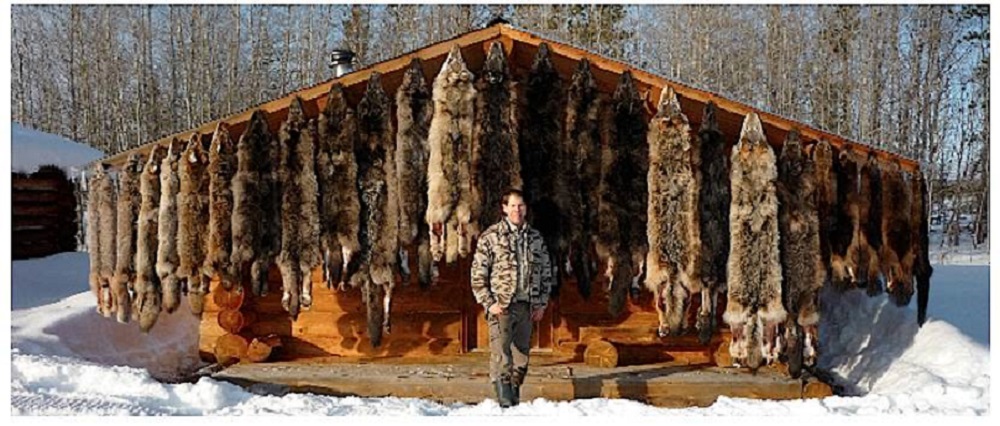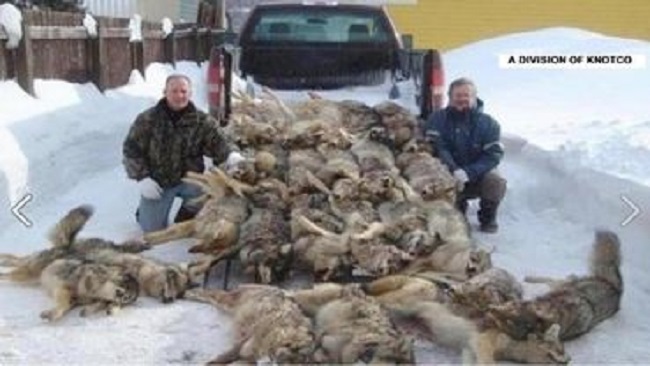
Wolf hunting has been a controversial issue in North America for many years, with some advocating for its continued practice and others strongly condemning it. While some argue that wolf hunts are necessary for managing wildlife populations and protecting livestock, others contend that they are cruel and unnecessary acts of violence against a majestic and essential species. In this article, we will explore the arguments against wolf hunts in North America, delving into the history, reasons, and impacts of these hunts. We will also examine the ethical concerns surrounding wolf hunts and discuss alternatives to these practices, as well as the role of advocacy and education in protecting wolves. Through this exploration, we hope to raise awareness about the importance of wolf conservation and promote greater understanding of this vital issue.
The History of Wolf Hunts in North America
The Beginnings of Wolf Hunts
Wolf hunts in North America date back to the colonial era, when European settlers began to encroach on wolf habitats. At the time, wolves were seen as a threat to humans, livestock, and game animals, and as such, were hunted to protect these resources. This led to the widespread hunting and trapping of wolves, resulting in a significant decline in wolf populations across North America.
The Decline in Wolf Populations
By the mid-20th century, wolf populations had been decimated across North America, with only a handful of small, isolated populations remaining. This decline in wolf populations had a detrimental effect on ecosystems, as wolves play a key role in regulating prey populations and maintaining the balance of ecosystems.
The Rise of Wolf Conservation
In the 1960s and 1970s, there was a growing recognition of the importance of wolves in maintaining healthy ecosystems. This led to the introduction of conservation efforts, including the Endangered Species Act (ESA) in the United States, which provided legal protection for wolves and other endangered species. As a result, wolf populations began to recover, and many states and provinces began to reintroduce wolves into their natural habitats.
The Reasons Behind Wolf Hunts
The Misconceptions About Wolves
Despite the efforts of conservationists, there remains a significant amount of misinformation and misunderstanding about wolves. Many people still view wolves as a threat to livestock and humans, despite evidence to the contrary. This has led to a backlash against wolf conservation efforts, and many states and provinces have reintroduced wolf hunts as a way to control wolf populations.
The Economic Interests of Wolf Hunts
Another factor driving wolf hunts is the economic interests of certain groups, such as ranchers and hunters. Ranchers often view wolves as a threat to their livestock, and thus support wolf hunts as a way to protect their livelihoods. Similarly, hunters see wolves as competition for game animals, and support wolf hunts as a way to maintain their hunting opportunities.
The Influence of Special Interest Groups
Finally, the influence of special interest groups, such as the National Rifle Association (NRA) and anti-wolf groups, has played a significant role in the resurgence of wolf hunts. These groups have lobbied for the removal of legal protections for wolves, and have pushed for increased hunting quotas and expanded hunting methods.
The Environmental Impact of Wolf Hunts
The Disruption of Ecosystems
One of the most significant impacts of wolf hunts is the disruption of ecosystems. Wolves play a crucial role in regulating prey populations, and their removal can lead to a cascade of ecological effects. For example, without wolves to control deer populations, deer can overgraze and destroy vegetation, leading to soil erosion and a decline in biodiversity.
The Impact on Prey Populations
In addition to disrupting ecosystems, wolf hunts can also have a direct impact on prey populations. When wolf populations are reduced, prey populations can increase, leading to overgrazing and other ecological problems. This, in turn, can impact other species that rely on the same resources.
The Effect on Biodiversity
Finally, wolf hunts can have a significant impact on biodiversity. Wolves are a keystone species, meaning they play a critical role in maintaining the balance of ecosystems. When wolf populations are reduced, other species can suffer as a result, leading to a decline in biodiversity.
The Economic Impact of Wolf Hunts
The Cost of Wolf Management Programs
Despite the economic interests of certain groups, wolf hunts can be expensive to manage. Wolf management programs can cost millions of dollars, as they require extensive research, monitoring, and enforcement. This cost is often borne by taxpayers, rather than the groups that benefit from wolf hunts.
The Impact on Local Economies
In addition to the cost of management programs, wolf hunts can also have a negative impact on local economies. Many communities rely on ecotourism as a source of income, and wolves are a popular attraction for tourists. When wolf populations are reduced, it can lead to a decline in ecotourism, and a loss of income for local businesses.
The Value of Ecotourism
Finally, it's important to recognize the value of ecotourism. Wolves are a vital part of North America's natural heritage, and many people travel from around the world to see them in the wild. Ecotourism can provide a sustainable source of income for local communities, while also helping to conserve wildlife and protect ecosystems.
The Ethical Concerns of Wolf Hunts
When it comes to wolf hunts in North America, there are some serious ethical concerns to consider. One of the biggest concerns is the suffering of individual wolves. Unlike other types of hunting, which are often used for food, wolf hunting serves no real purpose except to kill the animals. This means that wolves are killed for no reason other than human entertainment, which is ethically problematic.
The Suffering of Individual Wolves
One of the biggest ethical concerns with wolf hunting is the suffering that individual wolves endure. Wolves are highly intelligent animals that experience emotions and feel pain. When they are hunted, they are often shot multiple times before they die, which is a cruel and unnecessary way to end their lives.
The Lack of Necessity for Wolf Hunts
Another ethical concern with wolf hunts is that they are often unnecessary. Many wolf populations in North America have rebounded in recent years, thanks to conservation efforts. This means that there is often no actual need to hunt them. Instead, wolf hunts are driven by political and social factors, rather than conservation needs.
The Role of Humans in Wolf Conservation
Ultimately, the role of humans in wolf conservation is an important ethical consideration. Humans have a responsibility to protect and conserve the wildlife that we share this planet with. When we choose to hunt wolves for no real reason, we are failing in that responsibility.
Alternatives to Wolf Hunts
Fortunately, there are alternatives to wolf hunts that are more ethical and effective in promoting conservation efforts.
Non-Lethal Methods of Wolf Management
One alternative to wolf hunts is the use of non-lethal methods of wolf management. This can include things like the use of fencing to protect livestock or the use of range riders to deter wolves from coming into close contact with humans.
Collaborative Conservation Efforts
Another effective alternative to wolf hunts is collaborative conservation efforts. This involves working with local communities, conservation groups, and government agencies to develop effective conservation strategies that protect both wolves and the human populations that share their habitat.
Policy Changes to Promote Co-Existence with Wolves
Finally, policy changes can also promote co-existence with wolves. This can include things like creating wolf conservation zones, establishing compensation programs for livestock losses, and providing education and resources to help people live safely and peacefully around wolves.
The Role of Advocacy and Education in Protecting Wolves
Advocacy and education are crucial components of protecting wolves and promoting co-existence between wolves and humans.
The Importance of Public Awareness
One of the biggest challenges in promoting wolf conservation is public awareness. Many people still have negative perceptions of wolves, which can make it difficult to engage them in conservation efforts. By promoting public awareness about the importance of wolves and their role in the ecosystem, we can help shift public perceptions and create more support for wolf conservation.
The Influence of Advocacy Groups
Advocacy groups also play an important role in protecting wolves. These groups work to promote wolf conservation through public awareness campaigns, lobbying efforts, and other advocacy strategies.
The Role of Government Agencies in Promoting Conservation
Finally, government agencies also have an important role to play in promoting wolf conservation. These agencies can establish policies and regulations that protect wolves and their habitats, as well as provide funding for conservation efforts.
The Future of Wolf Hunts in North America
Looking ahead, it's clear that continued wolf hunts in North America will have a significant impact on wolf populations and ecosystems.
The Impact of Continued Wolf Hunts
Continued wolf hunts will likely lead to a decline in wolf populations, which can have cascading effects on ecosystems. Wolves play an important role in maintaining healthy ecosystems, and their loss can lead to imbalances in predator-prey relationships and other ecological processes.
The Possibilities for Change
Despite the challenges, there are still possibilities for change when it comes to wolf conservation. By promoting public awareness, advocating for policy changes, and promoting collaborative conservation efforts, we can work towards a future in which wolves and humans can coexist in harmony.
The Importance of Continued Advocacy and Education
To achieve this future, continued advocacy and education will be crucial. By staying informed and engaged on wolf conservation issues, we can help protect these iconic animals and the ecosystems they call home.In conclusion, wolf hunts in North America remain a contentious issue that must be approached with care and consideration. While the arguments for and against wolf hunts are complex and multifaceted, it is clear that the conservation of wolves is essential for maintaining healthy ecosystems and preserving biodiversity. As such, it is crucial that we continue to advocate for the protection of wolves and explore alternative methods of managing wildlife populations that do not involve violence or cruelty. By working together to promote greater awareness and understanding, we can ensure that wolves remain a vital and cherished part of the North American wilderness for generations to come.
Frequently Asked Questions
Why are wolf hunts conducted in North America?
Wolf hunts are conducted in North America for a variety of reasons, including managing wildlife populations, protecting livestock, and promoting hunting as a recreational activity. Some also argue that wolf hunts are necessary for preventing disease transmission and reducing conflicts with humans.
What is the environmental impact of wolf hunts?
Wolf hunts can have significant impacts on ecosystems, as they disrupt predator-prey relationships and can lead to imbalances in local biodiversity. Additionally, the removal of wolves can have cascading effects on other species, potentially leading to declines in entire food webs.
What are some alternatives to wolf hunts?
There are a variety of non-lethal methods that can be used to manage wolf populations, such as habitat restoration, the use of deterrents, and education programs aimed at reducing human-wildlife conflicts. Collaborative conservation efforts, such as those involving local communities and government agencies, can also be effective in promoting coexistence with wolves.
What can individuals do to help protect wolves?
Individuals can take a variety of actions to help protect wolves and promote their conservation. These include supporting advocacy organizations, contacting lawmakers to voice concerns, and educating others about the importance of wolf conservation. Additionally, individuals can make conscious choices in their daily lives to reduce their impact on the environment and promote sustainable practices.



